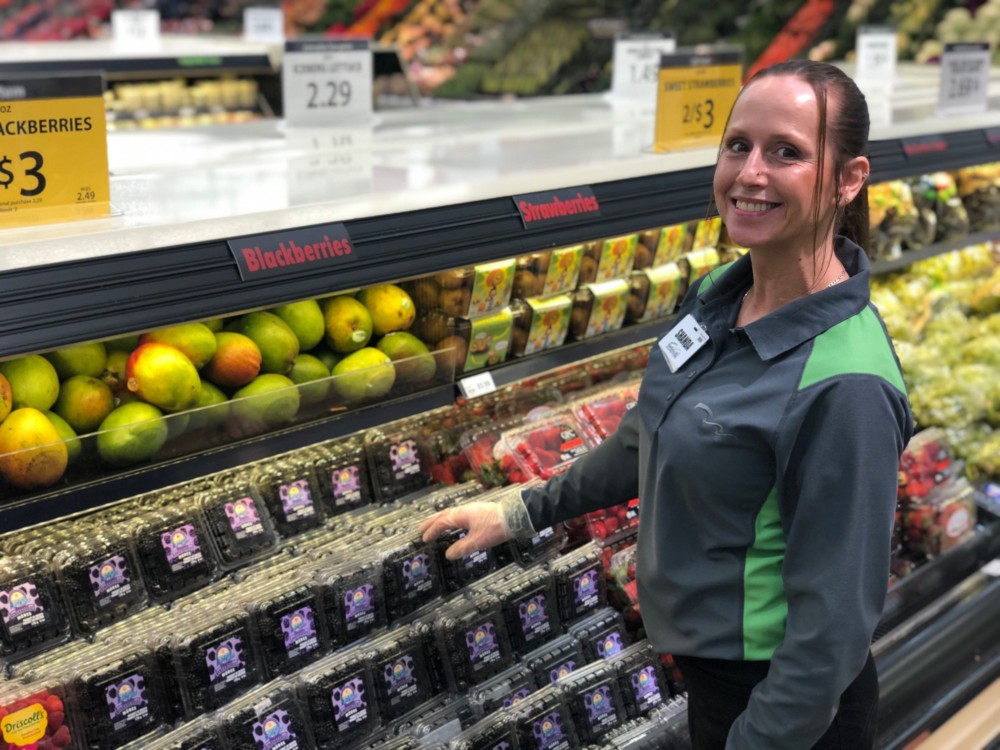How Fox Cities businesses and organizations are adapting to life during the COVID-19 pandemic
Show us a business that hasn’t been affected by the COVID-19 outbreak and we will show you a business that doesn’t exist. Businesses and organizations of all sizes have been profoundly impacted by the pandemic – there is no “business as usual” these days.
Some have been forced to close, while others are just trying to adapt. From live-streaming events to forging unlikely partnerships, these Fox Cities businesses have found new ways to reach customers and serve the community during a global crisis.
Turning to Technology
As social distancing and self-isolation practices became a way of life in the Fox Cities, more businesses and organizations began using technology to reach their patrons and clients.
The Kaukauna Public Library closed to the public on March 17 in an effort to slow the spread of COVID-19, the disease caused by the coronavirus. Interlibrary book loans were halted. Library card expiration dates were extended into late summer so patrons will not experience interruptions to online services. Library staff still report to work, but practice social distancing by working on tasks independently in various parts of the building.
“Paramount to all of this is safety,” says Ashley Thiem-Menning, Kaukauna Public Library director. “The biggest challenge has been keeping up with all the changes and how rapidly information is changing.”
While patronage at the library has come to an abrupt halt, programming hasn’t. The library’s regular programming that previously had been held in person, such as preschool storytimes and read-alongs, is now being streamed through Facebook Live. New programs, like craft tutorials and local history segments, are even being added to the live stream lineup.
The library’s first Facebook Live storytime was extremely successful with 60 viewers tuning in – the second live storytime had 90 viewers. These live streaming events have been so popular in fact, that Thiem-Menning predicts they won’t stop when the library reopens.
“It’s definitely opened up our eyes to how integrated technology is with our lives, so I think in the future we will continue programs like this,” she says.
Other programs include a Facebook Live reading of “Charlotte’s Web” with a librarian and her cat named Wilbur, live LEGO labs and virtual book clubs. For regular patrons of the library, this continuation of services can be a lifeline, Thiem-Menning says.
“We are getting creative on how to keep people busy, but also safe,” she says. “These programs can help bring in that normalcy and comfort during a strange time for all of us.”
On March 25, Gov. Tony Evers ordered all non-essential businesses to close. This forced many retailers like Tina Palmer, owner of Red Door Mercantile in Neenah, to quickly develop new ways of reaching customers.
“In the four years my shop’s been open, I’ve done maybe five Facebook videos,” Palmer says. “Now I’ve been doing two a day for the last two weeks.”
Palmer posts video tours of the store on Facebook, highlighting individual items and offering styling suggestions. If viewers see something they like, they can order through email, Facebook or by calling the store.
“In some ways it’s a whole different interaction with customers,” Palmer says. “Lots of times people don’t need or want help when they come in the store. In this case, they don’t know what we all have, so it’s more of a personal shopping experience and that’s one of the areas that I thrive in.”
Palmer assembles orders wearing gloves and leaves orders at the store’s back door when customers arrive for pick up.
“These no contact back door pickups have helped us get a little bit of movement in inventory and monetarily they help pay the rent and expenses,” Palmer says. “A couple people have said thank you for being here because they want to support our downtown. People are feeling shopping local is even more important.”
New Collaborations Emerge
The world has been forever changed by the COVID-19 pandemic, in ways that are yet to be seen, but new collaborations between businesses might just be a bright spot of the whole thing.
One such collaboration occurring between Neenah Foundry and ThedaCare Regional Medical Center is bringing the two businesses together in an unexpected way. Neenah Foundry is providing respirator fit testing for several ThedaCare anesthesiologists who will be working triage on the frontline of the local COVID-19 response.
“This is new to these medical professionals who don’t routinely wear respirators,” says Jo LeMoine, vice president of human resources for Neenah Foundry. “A cross collaboration like this is a very unique thing.”
A “fit test” tests the seal between the respirator’s facepiece and the wearer’s face. The wearer then performs simulated job activities while wearing the respirator to ensure they are fully protected from breathing in airborne contaminants, whether silica or the COVID-19 virus. A respirator can’t protect the wearer if it doesn’t fit their face correctly.
No stranger to respirators and fit testing, both of Neenah Foundry’s Safety and Occupational Health Services Teams are well versed in this procedure. There is sand in the foundry process, which creates dust. This dust is regulated by the federal Occupational Safety and Health Administration silica standard and requires respiratory considerations. Some foundry employees, like those who work in cleaning rooms where heavy dust is present, have to wear respirators on a regular basis. This requires regular fit testing.
In addition to fit testing, Neenah Foundry has donated various medical supplies and made widespread changes in response to COVID-19.
“It’s so dynamic. We have someone on our team whose job is literally watching for news releases and attending webinars to stay on top of the ever-changing environment,” LeMoine says.
Maintaining Safety & Morale
Food retailers have been one of the industries most impacted by the COVID-19 outbreak. Festival Foods, headquartered in De Pere, currently employs 7,500 associates at 33 stores throughout Wisconsin. As an essential business, the chain has been adapting to changes in consumer demand, health regulations, supply chain and workforce needs since the pandemic began.
“We know that it is a time of uncertainty and as we’ve all seen, each day brings more changes that we adapt to,” says Senior Director of Community Involvement for Festival Foods Brian Stenzel. “We have worked hard to ensure that associates and guests alike are aware of the changes that take place and we continue to rally together as a team along with our vendor partners.”
Festival Foods stores are continually receiving shipments of products on a regular basis to try to keep up with increased demand as consumers rush to stock their pantries. Stenzel says in the first two weeks of the crisis, product deliveries to the stores almost doubled in an effort to keep shelves stocked.
“While we’re seeing this balance out currently, most vendors continue to come more frequently to keep up with demand and deliveries are arriving seven days of the week,” he says. “Prior to the crisis, we normally received deliveries five or six days a week at maximum.”
Increased delivery loads and sales volume means it takes longer to stock shelves so employees are working double time to keep up.
“Our third shift team that stocks wants to ensure our guests are receiving the same quality products they are used to purchasing prior to the crisis, so we are working even harder to fill shelves and ensure our new deliveries are unloaded and ready for our guests,” says Tong Xiong, Menasha Festival Foods 3rd Shift Manager.
Communication between stores and their suppliers, vendors, warehouse workers and truck drivers has never been more vital. Steve Nelson, Menasha Festival Foods receiving manager, says his store has adjusted the way they receive products while complying with the state guidelines being sent daily.
“We have extended our receiving hours to accept deliveries when needed from our vendor partners,” Nelson says. “We have also changed the way we check in with our vendor partners to ensure we are keeping both our associates and vendor partners safe. I appreciate that with everything that is currently happening, the vendor partners I work with are still able to maintain the positive atmosphere we usually have.”
Safety and health awareness is at an all-time high. Sheryl Dingman, Menasha Festival Foods Floral Manager/Safety Lead, says stores acted quickly to establish all safety recommendations provided by local health officials and the CDC.
“One of our incredible evening cashiers at our store has taken the lead on thoroughly disinfecting every shopping cart daily with a mixture that was recommended by the CDC for cleaning purposes,” Dingman says.
During daytime hours, disinfectant bottles are available to shoppers who wish to clean their cart before use. Plexiglass barriers have been installed at every register to help protect shoppers and cashiers in close range of one another.
Because of the evolving COVID-19 situation, many of the Festival Foods stores are closing daily at 9 p.m. to allow staff the time to clean and replenish stock levels. The first two hours each day, from 5 to 7 a.m., are reserved for elderly and immunocompromised shoppers.
Maintaining morale under stressful circumstances can be challenging, but Menasha Festival Foods Store Director Paul Klinkhammer says his entire team is finding new ways to engage with each other while adhering to social distancing guidelines.
“We are having dance-offs in the store, singing in the aisles, and spreading joy with one another to keep the atmosphere high,” he says. “The best morale booster we have had recently is the support we are getting from our guests. Many of our associates have shared they have been hearing more and more guests expressing their appreciation for working during this time. Hearing ‘Thank you’ from our guests truly gives us that extra energy to keep going.”





